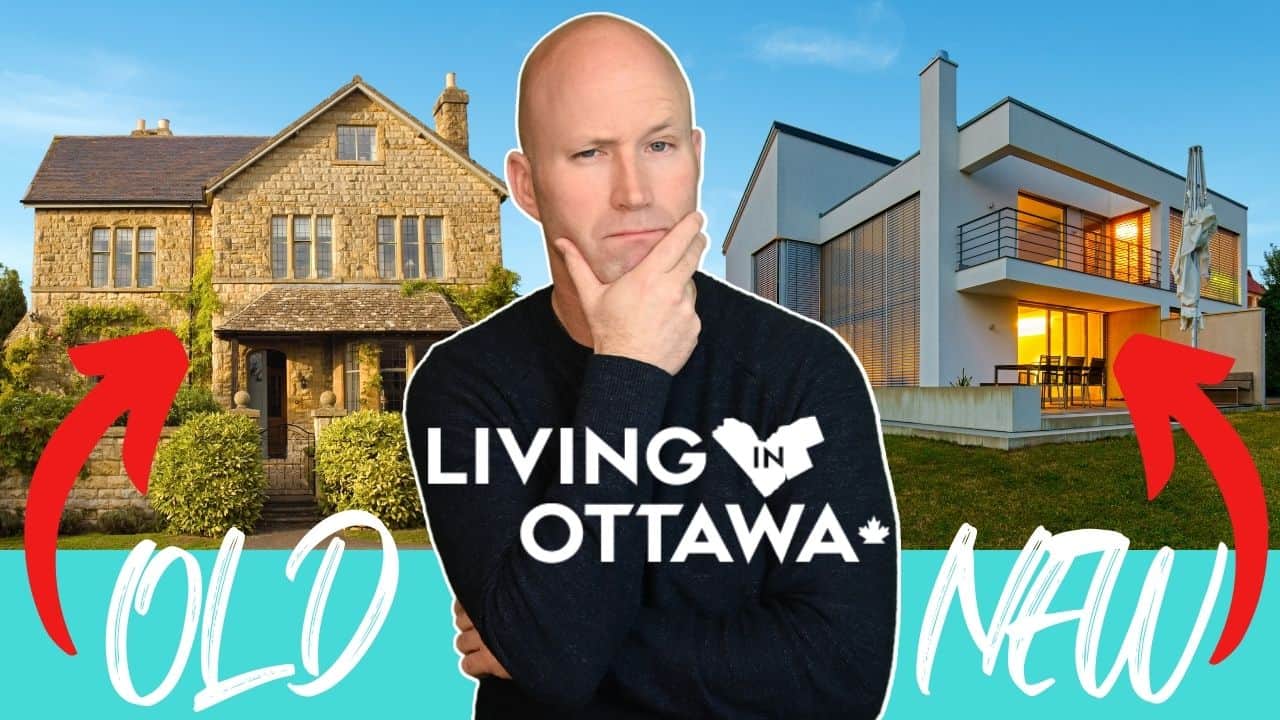Is it worth buying a fixer-upper in Ottawa Ontario? so, you’ve got your eyes set on the ‘Fixer-Upper’ life in Ottawa, eh? Fancy yourself as the next star of a DIY reality show, with visions of turning a decrepit dump into a dream palace. Savvy or foolhardy, only time will tell. As we navigate this maze of ruin-to-radiance, remember, Ottawa isn’t just Canada’s capital; it’s a city of possibilities, where one man’s dilapidated shack can be another man’s castle. Roll up your sleeves, gather your tools, and let’s determine if this risky yet potentially rewarding path of fixer-uppers in Ottawa is the right way to build your real estate empire.
Purchasing a fixer-upper in the scenic city of Ottawa, Ontario, may prove to be a worthwhile investment opportunity, albeit with several important factors that require thoughtful consideration. Primarily stemming from the potential cost savings they offer. By acquiring a property at a lower initial price point, astute investors position themselves to profit handsomely when the real estate market inevitably appreciates. However, it is imperative to acknowledge that this prospect can be a double-edged sword. The accuracy of your renovation cost estimates assumes paramount significance, as any miscalculations could potentially unravel the financial viability of the project. Engaging the services of professionals would be prudent if you lack the necessary expertise to perform certain tasks yourself since outsourcing such specialized work can prove quite costly.
Additionally, location plays a pivotal role in determining the ultimate return on investment a fixer-upper can yield. Opting for a property situated in a highly sought-after neighborhood significantly enhances your prospects for long-term financial gain. In summary, the decision to invest in a fixer-upper hinges upon carefully assessing your current financial situation, evaluating your renovating capabilities, and aligning your aspirations with your long-term goals. Seeking guidance from knowledgeable real estate professionals and a team of professionals who can tailor their insights to your specific circumstances would undoubtedly prove invaluable in making a well-informed and engaging investment choice.
1. Cost Savings and Potential Profit
Purchasing a fixer-upper offers the advantage of lower initial costs compared to move-in-ready homes. This means you can secure a property below market value, potentially leading to future profits as the real estate market appreciates. Embracing the unique charm of a fixer-upper is an exciting adventure where you can put your personal touch and creativity into transforming it into your dream home. Investing time and effort into a fixer-upper can be cost-effective and fulfilling, allowing you to create a space that truly reflects your style and vision.
Action Steps:
Determine Your Budget: For an investor, careful budget consideration is essential for the successful execution of a fixer-upper project. The budget is not only confined to the initial purchase price of the property but extends to cover renovation and refurbishing costs, permitting fees, home inspections, and potential unexpected expenses that can arise during the process. Misjudging the budget can lead to overspending and compromise the profitability of the project. Hence, a well-planned and robust budget acts as a financial compass, guiding the investor to make prudent decisions that align with their financial boundaries and investment goals. It helps in assessing the feasibility of the project, ensuring the expenses do not outweigh the potential return on investment upon the property’s resale.
Hidden Costs: Hidden costs can quickly add up and bring unwelcome surprises for the unprepared home investor. It is vital to factor in potential additional expenses such as property taxes, insurance, and ongoing maintenance costs that come with owning a property. For a fixer-upper, structural issues that may not be immediately visible can lead to substantial costs – for instance, problems with the foundation, roofing, plumbing, or electrical wiring may require professional intervention. Appliances and systems nearing the end of their lifecycle may also need replacement. Additionally, consider the costs of obtaining necessary permits for renovations, potential increases in utility bills during refurbishment, and the cost of professional property appraisal and inspection to ensure you’re making a sound investment. Being aware of these hidden costs and preparing for them can safeguard your investment and ensure profitability.
DIY vs. Contractor: Are you considering taking on home improvement projects? You’re not alone! Many homeowners face the dilemma of whether to go the DIY route or hire a contractor. It all boils down to assessing your own capabilities and determining which tasks you feel confident handling and which ones require professional expertise. By carefully weighing the pros and cons of both approaches, you can make an informed decision that suits your needs and ensures successful project completion.
2. Location Matters, research before buying a fixer-upper in Ottawa Ontario.
When evaluating a property, it is essential to consider the location carefully. You might find a fixer-upper in a highly desirable neighborhood. This could potentially offer a superior return on your investment compared to a similar property in a less sought-after area. The same reputable source supports this guidance. So, take your time, weigh your options, and make an informed decision that aligns with your investment goals.
Action Steps:
Research the Neighbourhood: Understanding the neighborhood before purchasing a property is a critical step for any investor. Location is a prime determinant of a property’s value, and this is particularly true for real estate investments intended for resale. An appealing neighborhood with convenient access to amenities, schools, and transportation can significantly boost the property’s attractiveness to potential buyers, leading to a quicker sale and higher return on investment. Moreover, researching the neighborhood can provide insights into the local real estate market trends, helping investors anticipate future property value appreciation. Hence, thorough neighborhood research is an essential prerequisite that guides a home flipper’s investment decision, ensuring the chosen property aligns with market demands and profit expectations, you can start by exploring our captivating neighborhood guides on our website.
Future Development: As an investor, you need to consider future development in the area you choose to purchase because it can significantly impact the property’s value and desirability. Anticipated developments, like new schools, transportation hubs, or shopping centers, can raise the appeal of a neighborhood, thereby increasing property values. Furthermore, areas slated for future growth and development often attract an influx of residents, which can lead to higher demand for housing and, in turn, the potential for greater profits upon resale. Therefore, understanding the trajectory of neighborhood development is a strategic move for investors aiming for maximized returns on their investments.
Commute and Accessibility: Commute and accessibility should be high on the list of considerations for an investor due to their significant impact on property desirability and value. An area with excellent transportation links and easy access to essential amenities such as schools, hospitals, and shopping centers is often more attractive to potential buyers or tenants. This, in turn, can translate to a quicker sale or rental, potentially at a higher price. Furthermore, considering the future, properties in well-connected areas are more likely to appreciate value as cities grow and transportation networks expand. Thus, the convenience of commute and accessibility can not only influence the immediate success of the flip but also potentially enhance long-term profitability.
3. Financing and Inspection
Assess your budget thoroughly for a smooth financial journey. Calculate not only the purchase price but also potential renovation costs to gain a clear understanding of the required financial resources. This allows you to make informed decisions and confidently proceed with your plans. A well-prepared budget sets a solid foundation for successful endeavors.
Action Steps:
Assess Your Budget: Assessing your budget is a critical step for an investor as it provides a transparent view of your financial capabilities and constraints. It helps establish a realistic and feasible roadmap for your project, preventing costly oversights and ensuring that the investment is within your means. By accurately calculating not just the purchase price but also potential renovation costs, you gain a holistic understanding of the necessary financial resources. This ultimately aids in avoiding financial pitfalls such as underestimating costs, overspending, or running out of funds mid-project. Therefore, a thorough budget assessment forms the foundation of a profitable and successful real estate investment.
Explore Loan Options: Exploring loan options is a crucial step for an investor as it broadens financial possibilities and provides the means to undertake significant renovation projects that might be beyond their immediate financial reach. Various loan programs, such as home renovation loans or bridge loans, are designed to cater to the precise needs of investors dealing with fixer-uppers. Understanding and leveraging these loan options can enable investors to purchase properties in desirable locations, carry out necessary renovations, and ultimately sell for a higher return. The ability to access such financial resources can make the difference between a profitable flip and a missed opportunity, thereby making the exploration of loan options an integral part of real estate investment strategy.
Budget for Contingencies: even with the most careful planning and diligent oversight, unexpected costs can arise during the renovation process, from unforeseen repairs to sudden changes in material prices. These can quickly eat into your budget and potentially halt progress if you’re not financially prepared. By setting aside a certain portion of your budget for such contingencies, you ensure that your project can continue smoothly even when faced with these unforeseen expenses. This not only reduces financial stress but also helps prevent project delays, keeping your flip on track for a successful and profitable completion.
For those looking to renovate homes or invest in properties in Ottawa, there are several helpful online resources worth checking out. Visit the City of Ottawa’s renovation resource page for essential information on permits and regulations. Explore Invest Ottawa for business support and networking opportunities within the local real estate industry.
The Greater Ottawa Home Builders’ Association (GOHBA) offers a variety of resources, including a local services and suppliers directory. Similarly, the Ontario Home Builders’ Association (OHBA) provides industry news and advocacy resources for the provincial home-building sector.
When considering purchasing a fixer-upper in Ottawa, Ontario, there are important factors to take into account. The allure of lower initial costs may be tempting, but careful consideration is crucial. Weighing the benefits against the challenges of extensive renovations and unforeseen costs is essential. Additionally, location plays a significant role in Ottawa’s real estate market. Consider the neighborhood, proximity to amenities, and property values. A well-located fixer-upper could offer promising returns. Ultimately, the decision should align with your financial situation, renovation skills, and long-term goals. If you’re up for renovations, have a solid budget, and value customization, a fixer-upper could be a rewarding investment. However, if you prefer move-in-ready homes or lack renovation expertise, explore other options. Consulting with a real estate expert can provide valuable insights tailored to your circumstances.
Without a doubt, the world of fixer-uppers can seem like a high-stakes poker game, where one wrong call can leave you with a money pit rather than a cash cow. But remember, the house always wins if you play your cards right. So, stack your deck with thorough research, careful planning, and the right mindset. Bet on the right property, and the returns could be more than just monetary; it could be a rewarding experience that leaves you flush with pride. Whether you’re a seasoned pro or a rookie, remember, in the vast poker game of real estate investment, it’s all about playing the hand you’re dealt!




